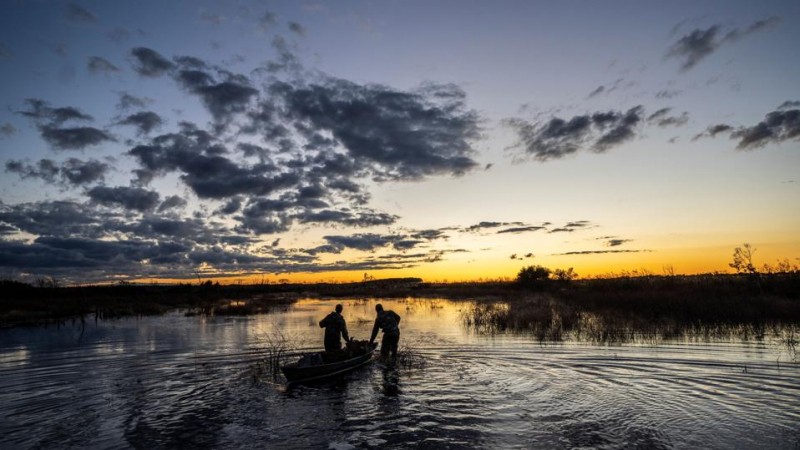The outdoor community is protesting against a budget bill that could sell off millions of acres of public hunting and fishing grounds.
This proposal, called the Big Beautiful Bill, has become problematic for America’s 60 million hunters and anglers. Utah Senator Mike Lee has suggested selling up to three million acres of federal land in the West. Traditionally, hunters and anglers are loyal Republican voters, but they are now standing against the idea of disposing of federal lands through the reconciliation process.
Jeff Crane, President and CEO of the Congressional Sportsmen’s Foundation (CSF), expresses concern:
“Some members of Congress may be taking hunters’ support for granted. Selling millions of acres of federal land in a rushed budget process is unacceptable to sportsmen.”
The CSF, a bipartisan organization based in Washington, D.C., advocates for sportsmen’s interests across the U.S.. It has the largest caucus of the Congress—about 250 members. Additionally, CSF supports sporting caucuses in all 50 states with over 2,500 members of state legislators and 25 governors. Their influence on Capitol Hill makes them a significant voice in conservation and public lands issues.
Senator Mike Lee argues that the bill will reclaim “underused” federal lands for housing and community growth management.
However, Crane emphasizes:
“For many hunters and anglers, federal lands are the foundation of their outdoor traditions.” These lands are where families create lasting memories with fish, wildlife, and nature.
Interested in exploring your own outdoor adventures? Book a vacation with MWR LIFE! Enjoy the beauty of nature and create memories on protected outdoor lands.
It’s also where conservation ethics are born, the kind Theodore Roosevelt memorialized in his many speeches and writings as he inspired the framework for America’s environmental ethos. “Land is the only thing in the world that amounts to anything,” he wrote. “For it’s the only thing in this world that lasts. It’s the only thing worth working for, worth fighting for…”.
Sportsmen have long embraced Roosevelt’s words, for when a similar measure to sell federal lands was raised in the house version of the bill, it quickly created a storm of opposition among sportsmen’s groups and was ultimately pulled thanks, in part, to CSF’s opposition. That the measure was even proposed, however, has given many sportsmen pause regarding their historic support of Republicans.
To many of the nation’s outdoorsmen and women, disposing of federal land is seen as something akin to pawning a family heirloom to pay a bank overdraft. If you’re perceived—rightly or wrongly—as someone standing between sportsmen and the ground where some of their greatest memories have been made, you can count on living in infamy in that community. It’s the kind of perceived betrayal that causes some voters to switch party affiliations.

The proposal would identify and sell between 2.2 million and 3.3 million acres of public lands across 11 western states
While 3 million acres is a pittance when compared to the national total of 245 million acres of Bureau of Land Management land and nearly 200 million acres of national forest property, sportsmen worry that such a sale in the reconciliation process, which only requires a simple majority—rather than a 60 percent majority under FLPMA—represents a dangerous precedent.
Once the land is sold in this manner, what’s to stop this from happening to ever more federal ground most ask? When the land is transferred, there’s realistically no mechanism to ever get it back.
For Republicans, the larger political question is what becomes of their relationship with their core voting block of 60 million sportsmen?
Can they afford to alienate them as the midterm election cycle gets underway—especially in key states where a public land sale will be anathema to the camo coalition?
For now, American sportsmen have turned their attention to Senate Majority Leader John Thune who hunters know as one of their own and who represents their best hope of stripping the land sale provision from the bill.
Even if the sale language is struck, however, after weeks of a national media barrage against the measure and those who proposed it, Republicans must wonder what political price they will pay with heretofore loyal supporters. The question will be: Was it worth it?
